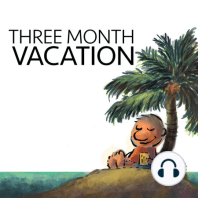1 min listen

Coaching Series: How To Start Up With A Great Niche - Part One
Coaching Series: How To Start Up With A Great Niche - Part One
ratings:
Length:
30 minutes
Released:
Nov 24, 2018
Format:
Podcast episode
Description
The toughest part of coaching isn't necessarily coaching itself. Instead, it's the niche, isn't it? How do you go looking for the right niche? And how do you know when you've found one that's rewarding as well as profitable? We go back in time with the British Cycling Team and what turned them into champions, and how their coach played a role. We also look at how Pilates went from being everything to everyone to finding a solid niche. Listen and enjoy. Click here to read online: Coaching Series 1/3: How To Start Up With A Great Niche ________________________________________ Hand washing is not exactly the activity you'd indulge in if you wanted to win the gold medal at the Olympics. Yet, that's exactly what the British Cycling Team did at the 2008 Beijing Olympics. They hired a surgeon to teach the athletes to properly wash their hands, in order to avoid illnesses during competition. The team staff were utterly fastidious about food preparation. They even brought their own mattresses and pillows, so that the athletes could sleep in a familiar posture every night. What does all of this have to do with coaching? It might seem totally weird, even slightly crazy, but these were just some of the methods Sir Dave Brailsford, head of British Cycling used to turn his scrappy little bunch into world champions. British Cycling went from a terrible 76 year record of just one gold medal, to 7 out of 10 gold at the Beijing Olympics and then 7 out of 10 at yet again at the London Olympics. They've even won three out of the last Tour de France competitions, with only Italy interrupting their successful run. Surely Britain didn't sprout champions overnight Something else was in play, and that something else is simply the teacher, or a coach. And there's a remarkable difference between being just someone who coaches others, and one that coaches to get precise results. The coach who works with a specific goal in mind takes great performers and transforms makes them unbeatable. If you look at almost any great artist, performer, athlete or professional, it's easy to seduce yourself into believing in inborn talent. In almost every instance, you will find it's the coach and their methods that take the client from a seemingly ordinary level to something quite stupendous. Without a coach, a person has to go through the gruelling method of having to figure out all the mistakes and fix it themselves. When you look at the 10,000 hour principle, what you're seeing is someone who doesn't have an outstanding coach. A coach can not only reduce the learning curve, but can make learning fun and addictive. In this series, we'll take apart not just what makes for good coaching, but the elements of coaching. Let's get started. How do you define your Niche as a Coach? Around the time of the California Gold Rush, one man, Samuel Brannan was known as the richest man in California. Contrary to what we might believe, Brannan didn't quite make his money panning for gold. He'd decided early on that he'd never make much money in the gold mines. Instead, he was reputed to have gone down the streets of San Francisco, shouting, “Gold, there's gold down the American river”. So where did Brannan's riches arise? His fortune arose from a strategic move. He owned the only store between San Francisco and the gold fields. He stocked his store with the picks, shovels and pans he could find paying barely 20 cents for each pan and selling it for $15 each. In scarcely nine weeks, he had made over $36,000 (in today's terms that would be 1,080,077.47). In short, Brannan put himself in a position where it was hard, even impossible for him to fail with his insight. When starting up as a coach, it's not easy to have such clear insight. In many cases, you're in transition yourself. You're often trying to find your own feet, your own space and voice. You do know one thing, though. You know that you can't be like everyone else rushing off with their pans and shovels. You instinctively know
Released:
Nov 24, 2018
Format:
Podcast episode
Titles in the series (100)
The 70% Principle: Why It Knocks Procrastination Out of the Ball Park: If a job is worth doing, it’s worth doing 70% right. You can always come back to do the 20% later. Yes, read it again, and no, the math isn’t wrong. If you’re going to build a website, a 70% effort is fine. If you’re going to do a presentation... by The Three Month Vacation Podcast